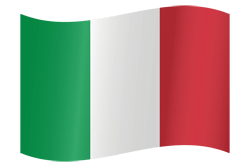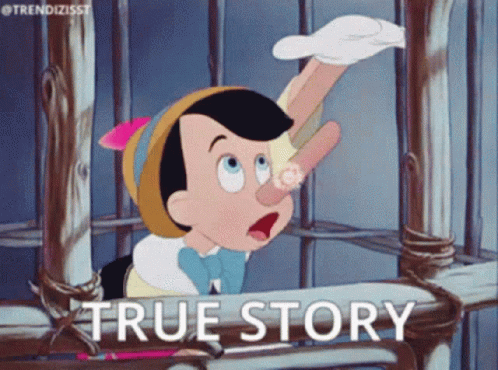 POLYNESIANS
POLYNESIANS
While the Phoenicians may have been regarded as one of the first sea-faring races in human history, the almost universally acknowledged greatest mariners in the world came from the islands of the Pacific, Polynesia. Over four thousand years they crossed the Pacific almost end to end, settling in Hawaii and New Zealand as well as Easter Island and, just possibly, America. They navigated by wind, waves, stars, clouds, birds and, um, pigs. Yeah. Not so much horsepower as pigpower. Sorry. I don’t quite understand it, but they apparently used to have pigs on board their ships and used them to smell out land. How? Search me. I assume, pigs being pigs, the porkers would have been trying to catch the scent of food of some sort, or at least something they could eat, even if that turned out to be natives, friendly or not. But why they wouldn’t just smell the food on board is beyond me. Who knows?

What is clear though is that the kind of skeptic who likes to throw cold water on the theories of visits to America prior to the Big C, the kind of suggestions made by our friend Barry Fell and his ilk, are stymied by the adventures of the Polynesians. Not only is there plenty of evidence of their habitation, at least in South America, but many efforts to reconstruct their voyages (pigless or not I don’t know) have been successful, so there’s little doubt they were capable of sailing across the Pacific and into the New World. Even die-hard holdouts have to agree to this. Unlike many of the peoples we’ve discussed previously, the Polynesians seem to have deliberately set out on voyages of colonisation; where the Japanese or Chinese might have been blown off course or fled from persecution, the Africans merely curious and the Norse trading, these lads actually set up and provisioned boats with their livestock and families, ready to head to “a new world” and make their home there. In that, they were perhaps the first true combination of explorers, mariners and colonists in the world.
The presence of the sweet potato in Polynesia, when the tuber is native to South America, points to the transplanting of this vegetable from one to the other, and as the Native Americans are known to have had no ocean-going vessels and, further, no interest in sea exploration if they had, the transfer could only have effected by the Polynesians who, having come to the continent, took the sweet potato back home with them when they left, or sent it on.
 ITALY
ITALY (Yes yes I know, but apart from him)
It might sound counterintuitive to say Italians discovered America before Columbus - wasn’t he, after all, an Italian? Well yes he was, but that doesn’t mean that one of his countrymen couldn’t have made landfall on the shores of America before him. It wasn’t intentional - a lot of the voyages that ended up in the New World were not - and Nicolò Zeno, having set sail in 1390 for England, got blown off course. To add possible insult to injury, Zeno was a Venetian, and Venice had been at war with, and had just defeated Genoa (birthplace of Columbus). A great storm arose and Zeno’s galley was pushed towards the Faroe Islands, where the natives were less than friendly. Zeno was saved by an Englishman who was visiting, the Earl of Orkney, Henry Sinclair.
The two got on well and given that Nicolò’s brother Carlo had led the fleet that had defeated the Genoans, the earl asked him to be captain of the fleet he was launching against the Shetland Islands (honestly, who would bother? Surely there are more sheep there than humans?) and when victory was won, knighted him. His brother, Antonio, joining him a year later, was promoted to admiral of his fleet on the passing of Nicolò. Some years later, following the tale of a fisherman who said he had returned from America (though he called it Estotiland) Antonio and Sinclair arrived - after having been again caught in a storm; things must have followed the brothers around!) - in Newfoundland, but less than welcome he had to travel on, and came to what has been more or less identified as Nova Scotia. The year was 1398.
Sinclair decided to build a settlement there, but Antonio and most of his men were more eager to get home, so they headed off while he stayed there with a few men. Nothing more is definitely known of him (though some estimates have been made that he returned and may have died in a British invasion of the Orkneys - what was it with the British invading tiny islands nobody cares about? Teach those sheep who's boss, huh?) and Antonio died soon after returning home, all of which, say the ever-present critics, deniers and naysayers, points to the whole thing having been a fabrication, an attempt by jealous Venusians sorry Venetians to get one over on the smug people of Genoa, who were soon afterwards touting that their local boy had done good.
He had, certainly, but not as good as they wished to claim.
 PORTUGAL
PORTUGAL
So what do you do when you’re the king of the country that turned away and refused to bankroll the supposed discoverer of the new world? Well, go and see if any of your subjects beat him to it. And how sweet if you could prove that they had done so a mere twenty years before him! João VAz Corte-Real claimed to have made this journey in 1472, which might sound a little suspicious that it was exactly twenty years before Columbus, but then just about everything about this story smells funny. First of all, there’s no corroborating evidence that any expedition was launched by the Portuguese on or around 1472, even though it’s supposed to have been financed by two kings, Portugal’s own Alfonso V and Denmark’s Christian I. A land grant given to Corte-Real later makes no mention of any discovery.

Despite this, he is hailed - in Portugal alone, tellingly - as the discoverer of America, which the tale (tale indeed, it would seem) says he named
Terra Nova de Bacalhau (New land of the codfish - that “cod” could also be telling; we Irish use the term to describe someone who is having you on, ie you’re codding me! Or you could say con I guess) and which, if the story is to be given any credence, was Newfoundland. The problem is that this story is told by a notorious liar and exaggerator known, rather appropriately, as Gaspar Frutuso, his being the only account of it. Nevertheless, Portuguese people proudly accept the flimsy tale, and there is a plaque in Lisbon commemorating the “great discoverer of America.”
And so it goes on. Both the Poles and the Danes claim nationality for Johannes Scolvus, who is said to have discovered America even closer to the famed date than Corte-Real, in 1476, a mere sixteen years before the Spanish claimed it. This story seems to have a little more in the way of support as historians from Spain, England and Netherlands all seem to agree that Scolvus reached Labrador around this time. The waters however have been muddied (sorry) by attempts to, for some reason, historically place two notorious pirates and the abovementioned Corte-Real in the same ship as Scolvus, and the whole thing has sort of dissolved into hysterical and sarcastic laughter.
Back in the - more or less - real world, the English claims are a bit more feasible, with their Bristol crews searching the oceans for a land off the west coast of Ireland which they named “The Isle of Brasil” (no, not that one) and which first took place in 1480, but due to adverse weather the search had to be abandoned as the ship was driven to the coast of Ireland. A year later they tried again, but there’s no proof that ship even left port. Nevertheless, a letter from English merchant John Day to possibly Columbus himself mentions the possibility, even the probability, of the English having discovered America first when he writes in about 1496 that “It is considered certain that the cape of the said land was found and discovered in the past by the men from Bristol who found ‘Brasil,’ as your Lordship well knows. It was called the Isle of Brasil, and it is assumed and believed to be the mainland that the men from Bristol found.” Unlike our friend Gaspar above, Day is a very credible source and his letter is widely believed to tell the truth, though there aren’t enough specific details to allow England a reliable claim to the discovery of America.